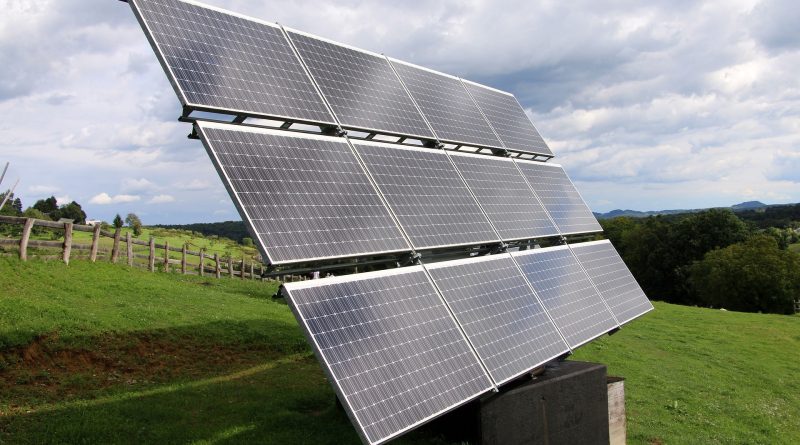Grid Solar System Benefits: Unveiling the Advantages
A grid solar system, also known as a grid-tied or grid-connected solar system, is an innovative technology that enables users to produce clean and sustainable energy while remaining connected to the electric grid. This system utilizes solar panels to convert sunlight into electricity, which can be used to power households or businesses. In this blog, we will explore the numerous benefits of a grid solar system and discuss why it is becoming an increasingly popular choice for energy consumption.
Table of Contents
The following are the benefits of Grid Solar System
1. Energy Cost Savings
One of the primary advantages of a grid solar system is the potential for significant energy cost savings. By harnessing solar energy, users can generate their electricity and reduce reliance on traditional energy sources that often come with increasing prices. With a grid solar system, excess power produced during sunny periods is fed back into the grid, resulting in a net metering system. This credits the user’s account with the excess electricity, which can be used during times when solar production is lower, such as at night or on cloudy days. Ultimately, this reduces the overall energy bill and provides long-term financial benefits.
2. Environmental Impact
Another major advantage of a grid solar system is its positive impact on the environment. Solar power is a clean and renewable energy source, producing no greenhouse gas emissions that contribute to climate change. As fossil fuel consumption and carbon emissions continue to rise, transitioning to solar energy is essential in mitigating the environmental damage caused by traditional electricity generation methods. By installing a grid solar system, individuals and businesses can actively contribute to a sustainable future by reducing their carbon footprint and promoting a cleaner environment.
3. Reliability and Energy Independence
Grid solar systems offer a reliable source of electricity that is less susceptible to power outages. Rather than solely relying on the electric grid, which can be prone to disruptions, grid solar systems empower users with energy independence. With net metering, excess electricity can be stored by the utility company and used during outages, acting as a backup power source. Moreover, in remote areas where connecting to the main power grid is expensive or impossible, a grid solar system provides a reliable and cost-effective solution for accessing electricity.
4. Reduced Strain on the Grid
As the demand for electricity continues to grow worldwide, the strain on the power grid increases. However, grid solar systems help alleviate this strain by decentralizing energy production. By generating electricity at the point of consumption, solar power reduces transmission and distribution losses that occur during long-distance electricity transportation. Consequently, grid solar systems contribute to a more efficient use of electricity, reducing the strain on the grid and minimizing the need for costly infrastructure expansion.
5. Tax Incentives and Financial Benefits
Governments and utility companies often provide tax incentives and financial benefits to encourage the adoption of solar energy. These incentives can significantly reduce the upfront costs of installing a grid solar system, making it more accessible and economically viable. Furthermore, homeowners and businesses with grid solar systems can benefit from schemes such as feed-in tariffs, where they receive additional payments for the excess electricity they feed back into the grid. These financial incentives not only make grid solar systems a financially attractive option but also assist in the transition towards a greener and more sustainable energy landscape.
Conclusion
In conclusion, grid solar systems offer a multitude of benefits, ranging from energy cost savings and reduced environmental impact to enhanced reliability and energy independence. By harnessing the power of the sun, users can take control of their energy consumption, reduce dependence on fossil fuels, and contribute to a sustainable future. Additionally, the availability of tax incentives and financial benefits further strengthen the case for embracing grid solar systems. As the world continues to seek alternative energy solutions, grid solar systems emerge as a reliable, environmentally friendly, and economically viable option for meeting our energy needs.
Ready to embrace the benefits of solar energy? Experience the future with SolarClue® today!
Frequently Asked Questions
Grid solar systems generate electricity and feed it into the existing power grid for broader distribution.
Grid solar systems reduce reliance on traditional energy sources, lowering carbon emissions and promoting sustainability.
Yes, by harnessing solar power, you can lower your electricity bills and potentially earn through excess energy production.
Absolutely, grid solar systems are adaptable for residential use, providing clean and renewable energy for homes.
Routine checks and occasional cleaning are typically all that’s needed to maintain the efficiency of grid solar systems.
Many governments offer incentives, tax credits, and rebates to encourage the adoption of grid solar systems.
Yes, with the right setup, grid solar systems can provide backup power during outages, ensuring continuous energy supply.
Yes, it’s possible to connect multiple properties to a single grid solar system, depending on the system’s capacity and local regulations.
With proper maintenance, a grid solar system can last 25 years or more.
SolarClue® experts can help you assess your energy needs and recommend the ideal size for your grid solar system.




